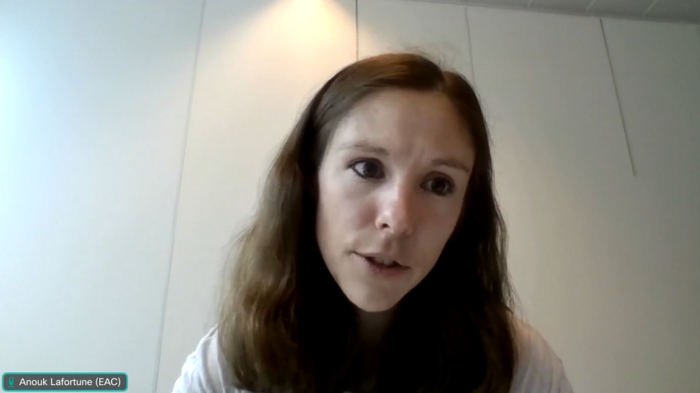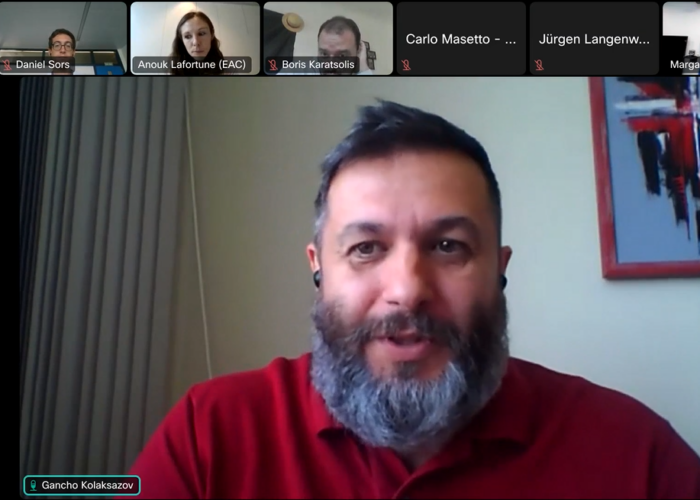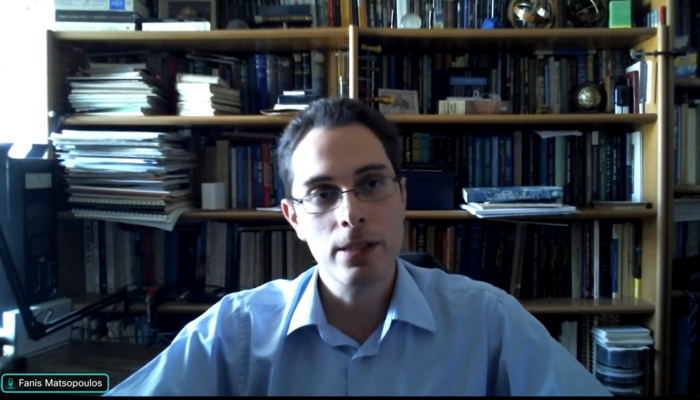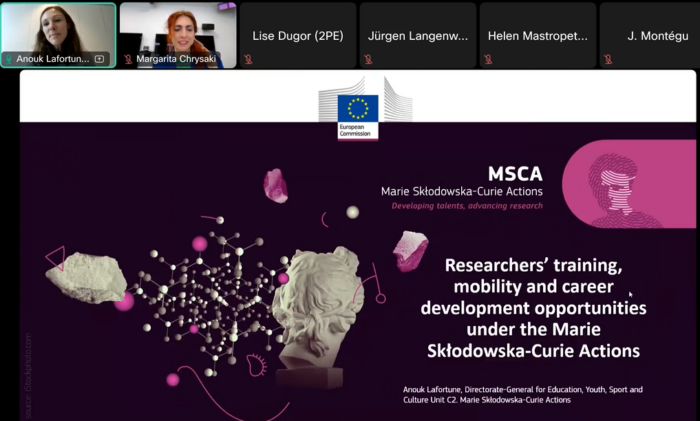This 12th information session aimed to explore and discuss the current state of play of funding to support scientists and entrepreneurs in the space sector at both European and global levels. The session was moderated by Ms Margarita Chrysaki, NEREUS Communication/Policy/Project officer.
Anouk Lafortune presented on the Marie Skłodowska-Curie Actions (MSCA), emphasizing the funding opportunities available to researchers and entrepreneurs in the space sector. She outlined how the MSCA promotes STEM and space research, the added value of this funding compared to other EU education and training initiatives, and the benefits regional stakeholders can gain from the program. Anouk shared several success stories highlighting the positive impact of MSCA funding on the careers of young researchers and the advancements in space science.
You may find here the participation of public administrations in MSCA, since 2022, in a Science-Policy matchmaking event in collaboration with the Joint Research Centre to bring together researchers, public administrations and other potential partners interested in the MSCA opportunities. Here are the links to the past matchmaking events’ pages:
- Successful first matchmaking between scientists and policymakers | Knowledge for policy (europa.eu)
- Second science-policy matchmaking event – Marie Skłodowska-Curie Actions (europa.eu)
The next one is planned for the autumn, with the date still to be confirmed.
You can also find here the Guide on synergies between MSCA and Erasmus+ in the field of higher education which aims to help MSCA and Erasmus+ stakeholders to understand and be aware of the opportunities that are available in the other programme: https://op.europa.eu/en/publication-detail/-/publication/1f4e362a-824b-11ec-8c40-01aa75ed71a1/language-en
More information on the MSCA & Citizens action can be found here: https://marie-sklodowska-curie-actions.ec.europa.eu/actions/msca-citizens and here: Researchers at Schools: researchers meet children to show the wonders of science | Marie Skłodowska-Curie Actions (europa.eu). The next call will be in 2025 for this action (the dates were on the slide).
Boris Karatsolis, a micropaleontologist and paleoclimatologist, shared insights from his current role as a EUTOPIA-SIF, Marie Skłodowska-Curie COFUND Fellow at Vrije Universiteit Brussel. Boris emphasized the importance of interdisciplinary research and collaboration, funded by EU programs, in advancing our understanding of climate change and its implications for the future.
Gancho Kolaksazov, Founder and CEO of Institute for technology transfer and innovations (ITTI), provided an overview of his organization’s research activities, particularly in STEM, entrepreneurship, and space innovation. He discussed how ITTI utilizes EU funds to promote research in the Earth Observation (EO) sector in Bulgaria and shared several success stories from his experience working with municipalities, private companies, and NGOs. Gancho highlighted the importance of establishing a robust innovation ecosystem to drive regional growth and competitiveness in the space sector.
Theofanis Matsopoulos, an expert in planetarium film production and visual science communication, showcased his work in promoting space research through documentaries and 3D animations. He discussed his collaborations with organizations such as the European Southern Observatory (ESO) and the European Space Agency (ESA). Theofanis shared how EU funds have benefited his projects and compared different funding schemes between the EU and abroad. He also conveyed the key messages that researchers and space scientists aim to communicate through his films, emphasizing the importance of making science accessible and engaging to the public.
The session concluded with an engaging Q&A segment, where audience members posed additional questions to the speakers, further enriching the discussion on the importance of funding in advancing space research and education.
Watch here the full webinar





